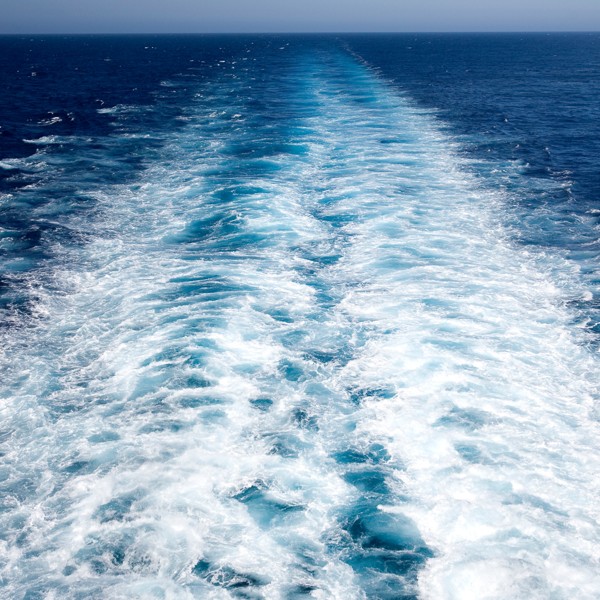Three questions to Ida-Maja Hassellöv, marine environmental researcher and leader of Chalmers’ thematic area Ocean, about the UN’s World Maritime Day on September 25th, when shipping is highlighted.
Hi Ida-Maja! This year’s theme for World Maritime Day highlights the ocean’s great importance for life on Earth. But what would you like to highlight on this day?
"It is truly fantastic to hear how the Secretary-General of the UN’s maritime organization IMO this year emphasizes the responsibility that shipping has in helping to protect our oceans. The state of the ocean is, in many respects, critical, and when it comes to shipping’s impact on the marine environment, today’s regulations are often inadequate. A concrete example is the use of so-called scrubbers, an exhaust treatment technology that produces extremely large volumes of heavily polluted water. Since July 1 this year, it has been prohibited to discharge scrubber water around Sweden, Denmark, and Finland, which is positive. But there are still strong forces wishing to maintain the opportunity to make large economic profits by continuing to use scrubbers."
In what ways does your research, and that of others, contribute to sustainable shipping?
"Our research, often in collaboration with other partners both in Sweden and internationally, forms the basis for, for example, the development of the ban on scrubber water discharges. Swedish shipping companies also generally have a strong environmental profile – they want to do the right thing, and many go beyond today’s legal requirements in order to minimize their environmental impact. That, in turn, is positive when we as environmental researchers push for stricter regulations, since it can provide a competitive advantage for those who are at the forefront of adapting for sustainability."
Chalmers and the logistics company Greencarrier have recently started a collaboration aimed at new research breakthroughs in marine environmental science. What happens now as a result of the partnership?
"Thanks to the partnership with Greencarrier, we are currently in the process of recruiting two PhD students, which will mean a very valuable reinforcement of our continued work for more sustainable shipping. As a curiosity-driven researcher, it is also wonderful to be able to combine exploring how shipping affects the marine environment with developing new ways to evaluate shipping’s environmental impact, which can then be put to use by relevant authorities, such as the Swedish Agency for Marine and Water Management and the Swedish Transport Agency. At the EU and global level, we can also contribute by transferring knowledge to the IMO. The partnership with Greencarrier also enables knowledge exchange between their logistics operations and our environmental research, which is very valuable. We learn from each other, and the potential is great!"
Ida-Maja Hassellöv lists three major challenges for the marine environment
Overfishing
“Ecosystems risk being drastically altered. Just think of the cod fisheries at the Grand Banks, which collapsed in the 1990s and have still not recovered. Closer to home, we have the acute situation with herring and cod stocks in the Baltic Sea.”
Effects of climate change
“Ocean acidification makes shell formation more difficult, and rising temperatures change the conditions for the survival of coral reefs, for example. The fact that forecasts suggest the great coral reefs may risk dying out within my lifetime feels incredibly frightening.”
Shipping
“Shipping is not evenly distributed across the oceans, nor is marine life. In coastal areas, the contribution of many pollutants from shipping can be very high, even compared to land-based activities. These areas are also where much of the biological production takes place – sometimes referred to as the oceans’ nurseries – and here we as humanity have the opportunity to reduce the burden on our marine environment, on which we all depend.”
Read more about Ida-Maja Hassellöv's research
Ships trigger high and unexpected emissions of the greenhouse gas methane
Marine environment at risk due to ship emissions
Research reveals large emissions from ship scrubbers
Related news

Greencarrier and Chalmers join forces for sustainable maritime research
Chalmers and the logistics company Greencarrier are entering a three-year strategic partnership to accelerate the sustainable transformation of the shipping industry. Greencarrier will support world-leading research and education in maritime environmental science, led by Associate Professor Ida-Maja Hassellöv.
- Head of Division, Transport, Energy and Environment, Mechanics and Maritime Sciences

